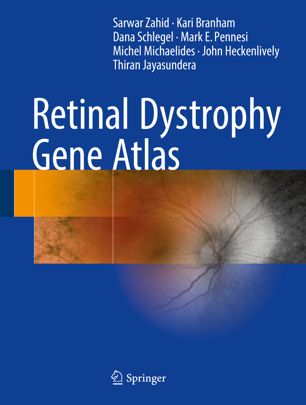

Most ebook files are in PDF format, so you can easily read them using various software such as Foxit Reader or directly on the Google Chrome browser.
Some ebook files are released by publishers in other formats such as .awz, .mobi, .epub, .fb2, etc. You may need to install specific software to read these formats on mobile/PC, such as Calibre.
Please read the tutorial at this link: https://ebookbell.com/faq
We offer FREE conversion to the popular formats you request; however, this may take some time. Therefore, right after payment, please email us, and we will try to provide the service as quickly as possible.
For some exceptional file formats or broken links (if any), please refrain from opening any disputes. Instead, email us first, and we will try to assist within a maximum of 6 hours.
EbookBell Team

4.4
92 reviewsClassically, photo atlases of retinal dystrophies have been divided into sections that describe and depict a particular retinal finding or disease, after which a differential diagnosis of potential diseases or mutated genes is provided. However, given the rapid improvement in molecular diagnostics, and the exponential increase in our understanding of the phenotypes caused by each mutated gene, the paradigm has changed. Physicians are now more interested in the variable expressivity associated with mutations in each individual gene. Therefore, Retinal Dystrophy GeneAtlas catalogs the different phenotypes that have been reported with each mutated gene. Each section describes a gene and its known clinical phenotypes and features of disease, along with retinal photos of affected patients. Written by prominent retinal dystrophy specialists from the largest dystrophy centers worldwide, Retinal DystrophyGene Atlas contains more than 80 chapters, each of which describes the clinical and photographic manifestations of a specific gene. The chapters include stunning clinical color photographs of the retina, autofluorescence imaging, electrophysiologic findings, and cross-sectional imaging. Retinal Dystrophy Gene Atlas serves as a resource to aid genetic diagnosis in patients with retinal dystrophies.